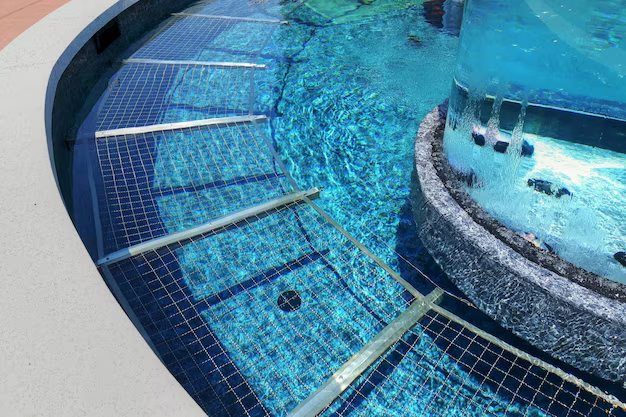Owning a pool is a wonderful way to enjoy the warm weather and create lasting memories with family and friends. However, maintaining a healthy and balanced pool requires diligent attention to various factors, from water chemistry to equipment maintenance. In this comprehensive guide, we’ll explore the essential elements of pool care, helping you achieve the perfect balance for a safe and enjoyable swimming experience.
Mastering Pool Water Chemistry
The foundation of a healthy pool lies in its water chemistry. Proper pH, alkalinity, and chlorine levels are crucial for keeping the water clean, clear, and safe for swimmers. Regularly testing and adjusting these parameters using a pool chemical service is essential to prevent issues such as algae growth, skin and eye irritation, and equipment damage. Understanding and maintaining the right balance of chemicals in your pool water is crucial for ensuring a safe and enjoyable swimming experience. The three main factors to consider are pH, alkalinity, and chlorine levels.
Maintaining Proper Chlorine Levels
Chlorine is the primary sanitizer used to keep your pool water free from bacteria and other contaminants. Ensuring the right chlorine levels is crucial for maintaining a safe and healthy swimming environment. Factors such as bather load, sunlight exposure, and water temperature can affect chlorine demand, so it’s important to monitor and adjust the chlorine levels accordingly.
Balancing pH and Alkalinity
The pH and alkalinity of your pool water play a vital role in the overall water chemistry. Proper pH levels (between 7.2 and 7.8) help the chlorine work effectively, while balanced alkalinity (between 80 and 120 ppm) stabilizes the pH and prevents rapid changes. Regularly testing and adjusting these levels can help prevent scale buildup, corrosion, and other water quality issues.
Maintaining Pool Equipment
Your pool’s equipment, including the pump, filter, and heater, plays a crucial role in maintaining water quality and circulation. Regular maintenance, such as cleaning or replacing the filter, checking for leaks, and ensuring proper operation, can help extend the lifespan of your equipment and prevent costly breakdowns.
Preventing Algae Growth
Algae can quickly turn a beautiful pool into a murky, unsightly mess. To prevent algae growth, it’s essential to maintain proper chlorine levels, brush the walls and floor regularly, and shock the pool with a high dose of chlorine when needed. Neglecting algae prevention can lead to costly and time-consuming remediation efforts.
Implementing a Pool Cleaning Routine
Consistent pool cleaning is essential for maintaining a clean and inviting swimming environment. This includes skimming the surface to remove debris, brushing the walls and floor to dislodge algae, and vacuuming the pool to remove any remaining contaminants. Establishing a regular cleaning schedule, whether done manually or with the help of a pool cleaning service, can help keep your pool looking its best.
Preparing for the Off-Season
As the swimming season comes to an end, it’s crucial to properly prepare your pool for the off-season. This includes lowering the water level, adding winterizing chemicals, and installing a sturdy pool cover to protect it from debris and weather elements. Neglecting this step can lead to costly repairs and a longer opening process in the spring.
Conclusion
Maintaining the perfect balance in your pool is essential for ensuring a safe, clean, and enjoyable swimming experience. By understanding the importance of water chemistry, chlorine levels, pH and alkalinity, regular cleaning, equipment maintenance, algae prevention, and off-season preparation, you can create a backyard oasis that will provide years of refreshing fun and relaxation. Remember, consistent attention to these key elements is the key to a healthy and well-functioning pool that your family and friends can enjoy all season long.
Read Also:


side effects of ivermectin – atacand cheap tegretol 400mg price
Your comment is awaiting moderation.